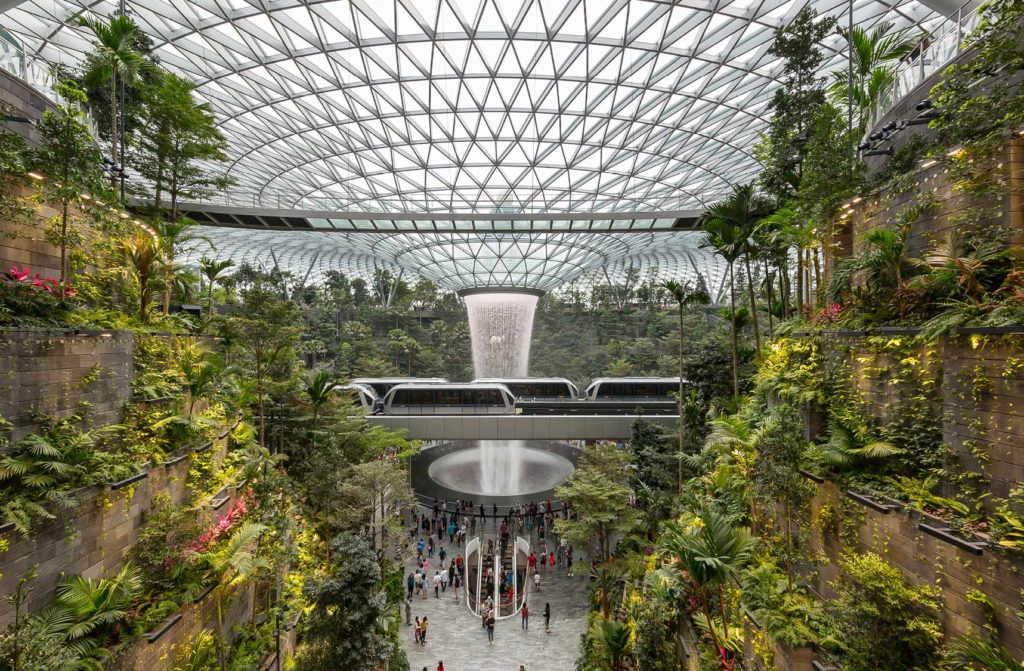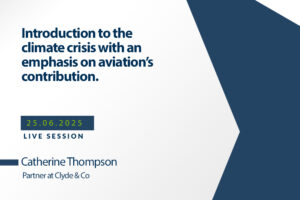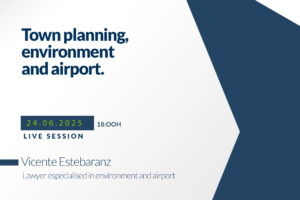
The sustainable and efficient environmental management of airports
News
Airports are infrastructures of great magnitude whose implementation and operation inevitably interferes with the environment and especially in the planning of the territory and its social and economic relations. The need to monitor and manage these conditions is the result of both the growing importance of issues related to environmental conservation and the evolution of business management methods that constantly seek consensus among the economy of resources and the provision of more efficient and sustainable services to users and the community.
The growing social awareness raised around environmental problems, promoted and endorsed by the different organizations and administrations, demands a business management model that does not jeopardize the future of new generations. In this sense, organizations try to reconcile socioeconomic development and environmental protection in each of their actions.
The need to make business management sustainable is a new model of governance of business externalities in the economic, social and environmental fields, as a response to the pressing public attention and the existing demands by civil society regarding the impact of business activity about society and the environment and where Corporate Social Responsibility is conceived as a reflection of the paradigm shift that has led to universal acceptance of the principle of sustainable development.
The environment has been configured in organizations dedicated to air transport as one of the most important conditions for the expansion of its activity, becoming a strategic variable within the organization.
Since the airport activity is capable of generating impacts in its environment, it is essential that the environmental variable is integrated into the early stages of planning and decision making, anticipating and assessing the possible environmental effects that could occur during the execution of the projects of infrastructures, as well as the commissioning of facilities and services. The Master Plan of each airport contains a chapter dedicated to environmental management in which issues such as energy efficiency, conservation of the natural environment, air quality, wastewater treatment, wildlife control and flora, waste management and recycling, noise mitigation, etc.
Any action raised from the respect for the environment, will require the effort and commitment necessary to make possible the compatibility between the growth of air transport and the conservation and protection of the quality of life and the natural values of the airport environment. Organizations dedicated to air transport are increasingly committed to sustainable development, in which the correct and rational allocation of available resources must prevail, in a context of safety, efficiency, quality and respect for the environment.
Spain, leading sustainable airport management in Europe
Surprisingly for many, in the XV edition of the awards of the International Airports Council of Europe (ACI Europe) to the best airports in the continent, the Eco-innovation award was given to Menorca Airport, which competed with many very serious candidates. Not to mention that the Oslo Airport, considered the “greenest airport in the world” and the main one of the world’s leading country in environmental protection and the fight against climate change, remained at the doorstep. But the biggest surprise was what made the Balearic island airport win the category.
This year’s competition for the ACI Europe awards, which brings together more than 500 airports in 45 European countries among its managing members, registered a high level of participation in each category.
Why Menorca Airport?
Menorca Airport was the winner thanks to an extensive record in ecological innovation, environmental management and sustainability.
The Menorcan airport is currently accredited in the Level 1 Mapping within the Airport Carbon Accreditation, which was applied under the discipline of Climate Change.
It was specially valued by the judges for investing in resources to reduce their environmental impact by developing their own dedicated management tools, as well as protecting the island’s rich biodiversity from climate change.
The judges also argued that the airport has implemented good water conservation strategies and addressed a variety of the UN Sustainable Development Goals, demonstrating that it is implementing a complete and innovative selection of different sustainability-oriented activities.
Specifically, Menorca Airport has been working for years on the development of internal management tools, innovation, renewable energies and environmental awareness activities, in line with the actions developed in this area on the island, to be one of the most sustainable of Europe.
Water and light
It has a treatment plant with BMR (biological membrane reactor) technology that treats wastewater with a very efficient filtration system to reuse water and has developed an automatic leak detection system that alerts instantly so that they are repaired immediately . All this has meant that, since 2013, it has reduced its water consumption by 50.8%.
Regarding the reduction of electricity consumption, the airport also carries out a series of initiatives, such as the use of large HVLS (High Volume Low Speed) fans in the Terminal Building that reduce the sensation of heat by 4 degrees, reducing the 30% electricity consumption.
In addition to other actions such as the use of electric cars, the installation of several points for recharging electric vehicles, the use of solar recharge batteries in traffic signs that require lighting, the closure of several areas of the airport during the months of less activity to minimize electrical expenditure, or the replacement of conventional lighting with LED lights inside the Terminal.
On the other hand, it has installed 1,800 photovoltaic panels, which produce 500 kW of electricity, adding to the 392 already installed and which currently provide the airport with 71 kW.
In the last decade, electricity consumption has decreased by 27% despite the fact that air traffic has increased in this period. Likewise, for this year 60% of the total energy consumed will come from renewable sources and in 2030 it will go to 80%.
ITAérea and the UN offer the only postgraduate degree in sustainable management of air transport in English
ITAérea Aeronautical Business School supports and encourages policies and measures to fight climate crisis and environmental conservation. Our commitment to the cause and the first step in this direction was signed by agreement at the UN headquarters in Geneva, in 2017. At the time the first stone was laid of what today is the only master in sustainable air transport management in the world. Taught in English, the Master in Sustainable Air Transport Management offers our students the essential tools for a sustainable and efficient management of all companies covered by air transport: from airports to airlines, through auxiliary service companies, service providers of air navigation, aircraft manufacturers, etc.
CONTACT info@itaerea.com +34 968 966 885 TEACHERS TRAINING





